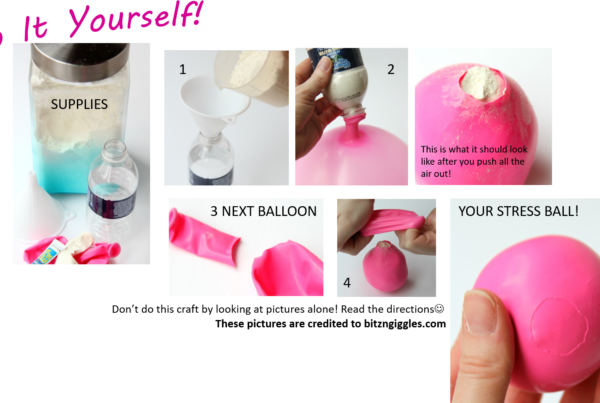
How do you process when another school shooting or similar mass tragedy is all over the news and social media? How do you deal with the thoughts and feelings you might be having about what you are reading and seeing?
When these kinds of events occur, it is difficult for anyone to process and make sense of it. People (both youth and adults) may feel a mixture of emotions or be confused by their thoughts and feelings about what is happening in the world. At TeenCentral, we have had experience with helping youth cope in the wake of these kinds of traumatic events as they unfold.
YOU ARE NOT CRAZY
We often remind people that you are “a normal person reacting to an abnormal event”. Think about that for a minute. NORMAL PERSON – ABNORMAL EVENT. Your feelings and reactions are not weird or shocking. Your reactions are typical for a normal person. Sadly, because so many similar events like school shootings have happened in our country over the past several years we may begin to think that those experiences are normal – but they are NOT normal. These events are horrible and they can be traumatic. So you may have thoughts and feelings and even physical reactions to them that seem strange. This is because your body and mind is reacting to an event that it’s not used to. It’s reacting the way a normal human reacts to abnormal events.
These normal reactions to abnormal events may include:
- Sleep and/or eating problems
- Sadness, tearfulness
- Fear, anxiety, worry
- Irritability, frustration, anger
- Nightmares
- Headaches, upset stomach
- Trouble focusing, feeling “numb” or “fuzzy”
- Not wanting to engage in normal activities, such as going to school
- Not wanting to leave your “comfort zone” (with whomever or wherever that is)
- Being “okay” at first but then “breaking down” unexpectedly
- Wanting to avoid the situation or talk about the situation
You may experience these reactions or may notice them in others – a parent, friend, teacher, younger sibling, etc. It’s important to be kind and sensitive to everyone following big events like this. People may be suffering even if you are not.
HOW TO HANDLE SYMPTOMS AND REACTIONS
It is normal for these symptoms to persist for a few weeks. After that point, they will probably subside a little bit at a time. But every youth and every adult is different. It may take a little longer for some or less time for others. The hope is that over a few weeks’ time that symptoms will slowly improve with support. If they do not, or if they get worse, it’s time to turn to a professional for help. This may be a family doctor or pediatrician, school counselor, therapist or services provided through a walk-in center or Employee Assistance Program at your parent/guardian’s workplace. Remember, you can always visit TeenCentral’s HELP PAGE for hotlines if you feel you are in Crisis and want to talk to someone right away. We often recommend the Crisis Textline to youth because it’s available 24 hours a day, 7 days a week and 365 days a year. All you have to do is text “HELLO” to 741741 and start a conversation. If you or a family member are in immediate danger please call 911 if you live in the United States or go to the closest Emergency Room. If you live outside the US please call for help from your law enforcement or go to the closest hospital for help.
LOSS AND TRAUMATIZATION
Typically, people who live closer to where the event happened, or people who are emotionally connected to the event, will have a stronger reaction than others. HOWEVER, TV and the Internet brings everyone a lot closer together these days. Because of this, people who live far away from where the event happened may feel stronger effects of the trauma because they are seeing real events replayed over and over on TV, or through the Internet.
Never underestimate the power of vicarious traumatization, which is to be traumatized by watching something, looking at pictures, or by listening to the telling of a story over and over. It may seem like an event isn’t connected to you but remember – the more you watch it or read about it on TV and the Internet, the more you expose yourself to feelings of vicarious traumatization.
Also – events involving any kind of LOSS have the power to activate memories of loss in other areas of your life. So, you may think you aren’t upset about something because it has nothing to do with you UNTIL it causes you to remember another loss that happened in your life. All of the sudden you ARE upset and thinking about that other loss. LOSS activates LOSS. It’s important to note that anything a person views in the media that strikes a chord for them personally, due to a past event or a personal concern/issue, can trigger negative thoughts or emotions. This is called a trauma response and should not be minimized or ignored.
What you can do to help yourself or someone else:
- Limit/eliminate exposure to media relating to the events.
- Talk about what happened if you need to – or write about it in your journal and then show it to a parent, guardian, counselor, etc.
- Try not to bring it up with other young people unless they bring it up with you and then make sure the conversation is constructive.
- If you are listening to someone who is upset about the situation, listen to what they have to say. Let them talk. Validate their emotions. If they make any concerning statements about their safety tell someone who can help them – a guidance counselor, their parent/guardian, someone…
- Know that you may experience worry, fear, sadness and anger. Be prepared to cope with these emotions and remind yourself that they are normal responses given the circumstances.
- Remember that you are safe and secure even though these situations in the world can make us doubt that sometimes.
- Take care of yourself. Listen to your body. Make sure you are eating and getting enough sleep. If you are having issues with sleep let a parent or guardian know.
- Use TeenCentral as a resource. Write a story and get some feedback from one of our counselors. We are here if you or one of your friends needs us.
In the LEARN section of TeenCentral there is a tab about Anxiety. This may be helpful for you to review if you are having trouble. The Mental Health Protection tool is also a great downloadable reference that could be relevant as we walk through difficult times as a country. We would encourage you to check it out. There are many more nuggets of helpful information on this website including stories written from other youth that may really help you feel less alone in anything you are battling right now. But most of all. in the context of this topic, please take care of yourself. Be careful of how much social media, TV and Internet you are exposing yourself to and protect yourself. Stay safe!




